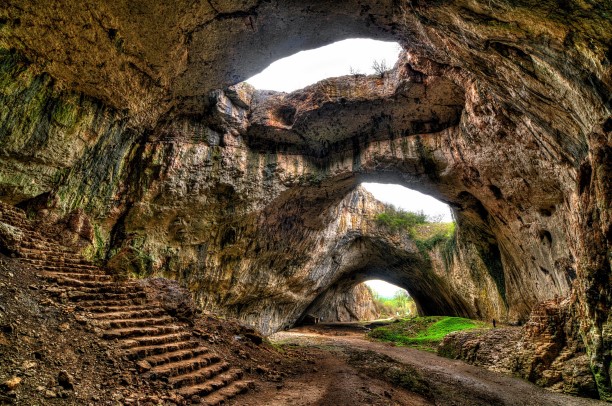Attractive beaches, sold out hotels, rich history. Bulgarian tourism is booming. Vacationers feel safe. The industry is hoping for a successful season.
In the seaside resort of Slantchev Brjag, internationally known as “sunny beach”, tourism is buzzing in June. Due to the risk of terrorism in countries such as Turkey or Egypt, Bulgaria has established itself as an alternative destination. Regular customers appreciate the good value for money of all-inclusive holidays and the beaches with fine sand.
“Bulgarian resorts are safe and preferred destinations,” says Nikolina Angelkova, the Minister of BulgarianTourism in Sofia.
Regional policeman Zhivko Daskalov praised good cooperation between security forces and hotels in order to avoid possible terrorist acts. “This includes guarding the beaches and training the hotel staff,” Daskalov said. Hoteliers, pub owners, ticket sellers and others are all hoping for a great summer.
Minister Angelkova is optimistic. An increase of 10% is expected in the sector compared to the record year 2016. It was the best year for Bulgarian tourism industry since 1989 with 8.2 million travelers from abroad arriving in the country. About 10% of vacationers came from Germany last year – nearly 33% more than in 2015. This year alone the number of early bookings from the Federal Republic had risen by 29%.
In 2017, the Institute for Tourism Analysis in Sofia expects 11% more holidaymakers than in the previous year. The main competitors of Bulgaria are its neighbors Greece and Turkey.
The most famous seaside resorts – Slantchev Brjag in the south and Slatni Pjassazi in the north – were founded 60 years ago along the longest sandy beaches of the Black Sea coast. From the monotonous, guided by the communist state tourism, there is no trace today.
With the transition to the market economy new hotels started getting launched from the ground. Old facilities were privatized and thoroughly renovated. New holiday settlements, green areas, water parks and discos were also added. Now, the customer is the king.
However, the Bulgarian tourism industry has a big problem – there is a lack of personnel. “I am new and know nothing,” an employee of a centrally located travel agency in Slantchev Brjag openly admitted. There are vacancies everywhere in the seaside resorts.
Because of low salaries in the poorest EU country, receptionists, room maids, cooks, waiters etc. have been moving to Greece, Italy or Malta, where they earn much better money.
The bottlenecks are now about thousands of workers from Non-EU countries, such as Ukraine and Moldova. The government in Sofia relaxed the rules for hiring these forces on June 1, because tourism is an important factor in the development of the country. The industry contributes around 13% to the economy.

Revenues from January to November of the record year 2016 were officially at 3.15 billion euros, 15% above the level of the previous year’s period. However, real revenues are likely to be much higher, as the shadow economy is not included in official statistics.
“A box of money opens in front of us,” said Walesi Simeonov, vice government minister for tourism, describing the great potential of Bulgarian tourism. Minister of State Angelkova sees new, ambitious goals for the future: with its rich cultural heritage and good wine, Bulgaria should become an all-year destination for guests with high expectations.